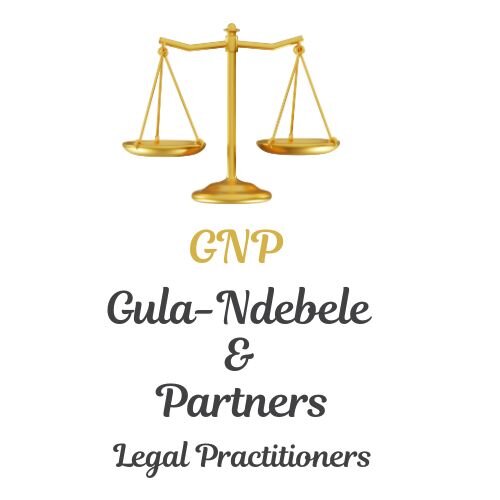Best Wage & Hour Lawyers in Bulawayo
Share your needs with us, get contacted by law firms.
Free. Takes 2 min.
List of the best lawyers in Bulawayo, Zimbabwe
About Wage & Hour Law in Bulawayo, Zimbabwe
Wage and hour law in Bulawayo, Zimbabwe refers to the set of regulations governing minimum wage, working hours, overtime, rest periods, holidays, and related employee rights. These laws are designed to ensure fair treatment of workers, protect them from exploitation, and create clear standards for both employers and employees. In Zimbabwe, labor issues are primarily regulated by the Labour Act [Chapter 28:01], and further shaped by collective bargaining agreements specific to different industries.
Why You May Need a Lawyer
Navigating wage and hour matters can be complex, and there are common situations where legal assistance may be necessary. You may need a lawyer if:
- Your employer has not paid you the agreed wages or has withheld payment without lawful cause.
- You believe you are not being paid the statutory minimum wage for your industry or job role.
- You are working overtime and are unsure if you are being properly compensated.
- You have been unfairly denied rest periods, meal breaks, or leave entitlements outlined in your contract or labor laws.
- You have been dismissed or penalized for raising concerns about pay, working hours, or employment conditions.
- You are an employer facing wage-related claims or needing guidance to ensure compliance with local labor regulations.
- You are involved in disputes regarding contracts, redundancy, or retrenchment pay.
A lawyer can help you understand your rights, represent you in negotiations or hearings, and ensure you receive fair treatment under the law.
Local Laws Overview
The Labour Act [Chapter 28:01] is the main law governing employment matters in Bulawayo and throughout Zimbabwe. Key aspects relevant to wage and hour issues include:
- Minimum Wage: The minimum wage is set either by government directive or through collective bargaining agreements. Each sector may have different minimum wage rates.
- Hours of Work: The standard work week is typically up to 45 hours. Any work above this may be considered overtime.
- Overtime: Overtime pay is usually at a higher rate, often agreed upon in industry-specific collective bargaining agreements, and must comply with legal standards.
- Rest Periods: Employees are entitled to breaks during the working day, as well as weekly rest days, commonly every Sunday.
- Public Holidays: Employees are generally entitled to payment for work on public holidays, often at a premium rate.
- Leave Entitlements: Employees qualify for annual leave, sick leave, and special leave under specific circumstances.
- Payment of Wages: Wages should be paid on a regular and agreed-upon schedule. Deductions can only be made according to law.
- Dispute Resolution: Disputes are often resolved through the Labour Court or Arbitration processes facilitated by the Ministry of Labour and Social Welfare.
These laws apply to most formal sector employees, but different arrangements may exist in the public sector or under specific contracts.
Frequently Asked Questions
What is the current minimum wage in Bulawayo, Zimbabwe?
Minimum wages vary by sector and are subject to periodic revisions through government announcements or collective agreements. It is important to check your sector’s specific rates through your employer or the National Employment Council for your industry.
How many hours can I legally work per week?
The standard legal workweek is generally 45 hours. Working beyond this entitles you to overtime pay, typically at a higher rate.
Am I entitled to overtime pay, and at what rate?
Yes, employees working beyond standard hours are entitled to overtime pay. The rate depends on your sector’s collective bargaining agreement, but it is commonly at least 1.5 times your usual hourly rate.
How frequently should I be paid?
Wages must be paid on the date agreed between the employer and employee. This is usually monthly, though some industries may pay weekly or fortnightly.
Can my employer make deductions from my wages?
Only lawful deductions are allowed, such as income tax, social security contributions, or deductions mandated by court order. Other deductions require your written consent.
What should I do if my employer does not pay my wages?
You should first try to resolve the issue directly with your employer. If this fails, you can seek help from the Ministry of Labour and Social Welfare, or consult a lawyer to assist with legal action or mediation.
How much annual leave am I entitled to?
Employees are generally entitled to a minimum of 30 days of paid annual leave after each year of continuous service, subject to your contract or industry agreement.
Are there protections against unfair dismissal related to pay disputes?
Yes, the Labour Act includes protections against unfair dismissal. If you are dismissed for raising legitimate wage or hour concerns, you may have grounds for legal action.
What is a collective bargaining agreement?
A collective bargaining agreement is a contract negotiated between employers and employee representatives (often trade unions) that sets terms and conditions of employment for a specific sector, including wages and hours.
Where can I file a complaint about wage and hour issues?
Complaints can be lodged with the Ministry of Labour and Social Welfare, the local Labour Court, or via your sector’s National Employment Council, depending on the nature of the issue.
Additional Resources
Several organizations and government bodies can assist with wage and hour matters in Bulawayo, Zimbabwe, including:
- The Ministry of Labour and Social Welfare - for guidance, complaint resolution, and legal processes.
- Labour Court - handles disputes related to employment and compensation.
- National Employment Councils (NECs) - regulate terms for specific industries and provide dispute resolution services.
- Trade unions - offer support and advocacy for members on work-related rights.
- Zimbabwe Congress of Trade Unions (ZCTU) - provides information and assistance for labor rights.
Next Steps
If you believe your wage and hour rights have been violated, or if you need guidance as an employer, consider the following steps:
- Document the issue, keeping detailed records of hours worked, pay received, and correspondence with your employer.
- Attempt an internal resolution by discussing your concerns with your employer or HR department.
- If unresolved, seek advice from your sector’s National Employment Council or your trade union if you are a member.
- Contact the Ministry of Labour and Social Welfare to file a formal complaint or begin mediation.
- If you need specialized advice or representation, consult a lawyer experienced in labor law in Bulawayo.
Act promptly, as legal remedies may be subject to time limits. Engaging with the appropriate authority or a legal expert early increases your chances of a favorable outcome.
Lawzana helps you find the best lawyers and law firms in Bulawayo through a curated and pre-screened list of qualified legal professionals. Our platform offers rankings and detailed profiles of attorneys and law firms, allowing you to compare based on practice areas, including Wage & Hour, experience, and client feedback.
Each profile includes a description of the firm's areas of practice, client reviews, team members and partners, year of establishment, spoken languages, office locations, contact information, social media presence, and any published articles or resources. Most firms on our platform speak English and are experienced in both local and international legal matters.
Get a quote from top-rated law firms in Bulawayo, Zimbabwe — quickly, securely, and without unnecessary hassle.
Disclaimer:
The information provided on this page is for general informational purposes only and does not constitute legal advice. While we strive to ensure the accuracy and relevance of the content, legal information may change over time, and interpretations of the law can vary. You should always consult with a qualified legal professional for advice specific to your situation.
We disclaim all liability for actions taken or not taken based on the content of this page. If you believe any information is incorrect or outdated, please contact us, and we will review and update it where appropriate.












